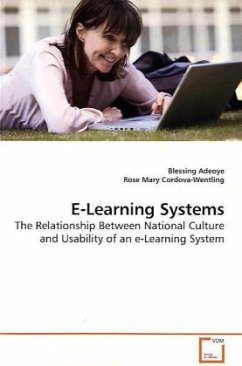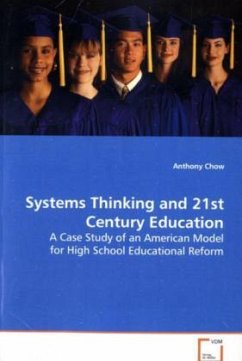
Educational systems change: From mandates to conversations
Teachers experiences with design conversation in the context of school change
Versandkostenfrei!
Versandfertig in 6-10 Tagen
45,99 €
inkl. MwSt.

PAYBACK Punkte
23 °P sammeln!
That school change is necessary is commonly agreedupon. Mandated reforms with little or no user involvement were characteristic of many change efforts, but to datethose efforts have not brought forth results that are substantial andfar reaching enough to truly turn the education system into onethat serves the learners needs. The education system is certainly anintegral part of any community and, as such, a community developmentaffair. Still, when school change is attempted, the communicationthat needs to happen, when the users who form the community becomeinvolved in the design of the changes,...
That school change is necessary is commonly agreed
upon.
Mandated reforms with little or no user involvement were
characteristic of many change efforts, but to date
those efforts have
not brought forth results that are substantial and
far reaching
enough to truly turn the education system into one
that serves the
learners needs. The education system is certainly an
integral part of
any community and, as such, a community development
affair. Still,
when school change is attempted, the communication
that needs to
happen, when the users who form the community become
involved
in the design of the changes, seems to be at best an
afterthought.
Teachers experiences with design conversation for
educational
systems design are the core of the research question
for this study.
Communicative approaches such as design conversation
might gain
in importance as more sustainable and system-wide
approachesto
school change are searched for.
upon.
Mandated reforms with little or no user involvement were
characteristic of many change efforts, but to date
those efforts have
not brought forth results that are substantial and
far reaching
enough to truly turn the education system into one
that serves the
learners needs. The education system is certainly an
integral part of
any community and, as such, a community development
affair. Still,
when school change is attempted, the communication
that needs to
happen, when the users who form the community become
involved
in the design of the changes, seems to be at best an
afterthought.
Teachers experiences with design conversation for
educational
systems design are the core of the research question
for this study.
Communicative approaches such as design conversation
might gain
in importance as more sustainable and system-wide
approachesto
school change are searched for.












